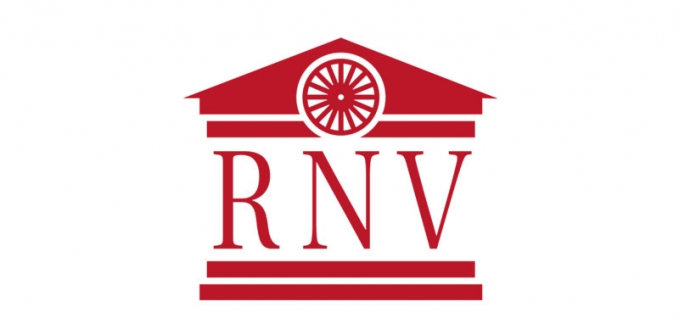
Međunarodni dan Majke Zemlje proglašen je 2009. godine, od strane Opće skupštine Ujedinjenih naroda Rezolucijom A/RES/63/278. Rezoluciju je predložila Višenacionalna Država Bolivija, a podržalo ju je više od 50 država članica UN. Rezolucijom je potvrđeno kako su "Zemlja i njeni ekosustavi naš dom" i kako je "potrebno promovirati sklad s prirodom i Zemljom". Izraz 'Majka Zemlja' koristi se jer "odražava međusobnu ovisnost ljudi, drugih živim bića i planete na kojoj svi živimo". Odlučeno je da se Međunarodni dan Majke Zemlje obilježava svake godine 22. travnja.
Prevela: Milica Kuzmanović
Bolivija je jedno od vodećih zemalja na međunarodnoj razini u pogledu prepoznavanja važnosti prirode. Ustavnim reformama iz 2009. godine, između ostalih izmjena, priznata su i prava 'Majke Zemlje'. Bolivija i Ekvador su uveli novitet u pravne sustave - prava 'Majke Zemlje' i prirode. Tekst Ustava Bolivije to pravo spominje pet puta.
U Boliviji, ‘Majka Zemlja’ ima jasno duhovno značenje ukorijenjeno u narodnoj tradiciji. Članak 9. Ustava Bolivije kaže: "Mi ovu svetu Majku Zemlju naseljavamo različitim licima [...] Ispunjavajući zapovijed našeg naroda, snagom naše Pachamame i zahvaljujući Bogu, ponovno smo pronašli Boliviju." Pachamama je dobroćudno i plodno božanstvo u kulturi naroda Aymare i Quechua, a prevodi se kao "Majka Svijeta"
Jedna od glavnih uloga bolivijske države je "promicanje i jamčenje odgovornog i planiranog korištenja prirodnih resursa, promicanje njihove industrijalizacije [...] kao i očuvanja okoliša za dobro sadašnjih i budućih generacija.’’
Možemo uzeti Ustav Bolivije kao primjer za sve slične temeljne dokumente širom svijeta, jer Ustav Bolivije uistinu ima revolucionarni pristup ne samo u pogledu prirode i prirodnih resursa, već i u odnosu na prava starosjedioca. Primjerice, jedno od tih prava odnosi se na traženje dopuštenja od starosjedioca prije bilo kakve eksploatacije prirodnih resursa koja bi mogla izravno utjecati na njihov način života.
Ako je jedan od postavljenih ciljeva Ujedinjenih organizacija i cijele međunarodne zajednice unaprijeđenje sadašnjeg stanja prirode i promocija zaštite prirode, neophodno je da države počnu to unaprijeđivanje i promociju te da donesu strože zakone s pravilima o iskorištavanju prirodnih resursa odnosno da zatraže veće doprinose u obliku poreza od kompanija koje najviše zagađuju okoliš.
Tradicionalan način života Roma uglavnom je bio povezan s prirodom. Kao nomadi u velikom dijelu su bili izloženi prirodi ali i bili njen dio, a i njihov nomadski život je u značajnoj mjeri ovisio o poznavanju prirode. Ta povezanost se ogledala od korištenja konja i magaraca za transport do života u blizini rijeka i jezera. Bilo je to uistinu život od prirode i s prirodom.

International Mother Earth Day was established in 2009, by the United Nations General Assembly under Resolution A/RES/63/278. The Resolution was introduced by The Plurinational State of Bolivia and endorsed by over 50 member states. It recognizes that "the Earth and its ecosystems are our home" and that "it is necessary to promote harmony with nature and the Earth." The term Mother Earth is used because it "reflects the interdependence that exists among human beings, other living species and the planet we all inhabit". April 22 was designated as International Mother Earth Day.
Bolivia is one of the leading authorities at international level in the topic of recognition of the importance of nature. In the Constitutional reform of 2009, among other changes, they have recognized the rights of “Mother Earth”. Together with Ecuador, they have introduced a real legal novelty: the rights of Mother Earth and nature to which the Bolivian text refers five times.
In the case of Bolivia, Mother Earth clearly has a spiritual connotation and is rooted in indigenous traditions. As the article 9 says: "We populate this sacred Mother Earth with different faces [...] Fulfilling the mandate of our peoples, with the strength of our Pachamama and thank God, we re-found Bolivia." Pachamama must be understood as a benevolent and fertile divinity in Aymara and Quechua culture, which also translates as "Mother World"
In Bolivia, one of the main purposes and functions of the State is "to promote and guarantee the responsible and planned use of natural resources, and to promote their industrialization [...] as well as the conservation of the environment, for the well-being of current generations and future.
We can use their constitution as an example for all legal equivalents around the world, as it really has a revolutionary approach not only regarding nature and its resources, but in what it refers to indigenous rights. One of them is to ask them previously before any kind of exploitation of natural resources that might directly affect their lifestyle.
If one of the goals set up by international organizations of the caliber of United Nations and the whole of the international community is to improve the current state of nature and promote eco systems protection, it is necessary for States to start improving and making the legislation regarding the exploitation of natural resources stricter, therefore demanding bigger tax contributions from the companies which pollute the most.
Roma people’s traditional lifestyle has mostly been related with nature, as by being nomadic in order to travel and survive there is a big dependence on nature, and it is necessary to know about it. Animals such as horses or donkeys were always needed in order to transport themselves and their possessions. They would use the rivers and lakes in order to fish or bath themselves. A life truly dependent on nature and its surroundings.